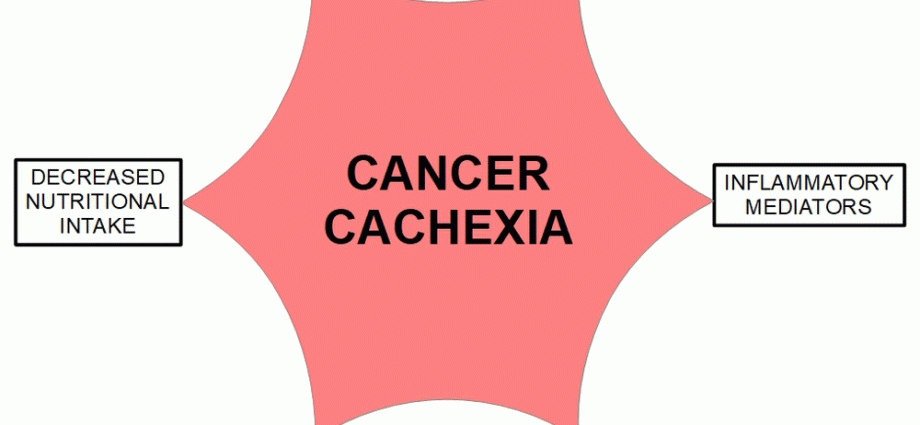From 20 percent up to 40 percent cancer patients in advanced states die not from the disease itself, but from exhaustion of the body, i.e. a significant loss of body weight – says Iwona Sajór, a PhD student at the Institute of Food and Nutrition in Warsaw.
Destruction of the organism, i.e. cachexia is largely associated with severe malnutrition, when the patient loses more than 10 percent. body weight. “Malnutrition is one of the main health problems of cancer patients” – says Dr. Iwona Sajór.
The specialist will soon defend her doctoral dissertation on the impact of nutrition on the condition of cancer patients. He emphasizes that as many as half of them show eating disorders, especially in diseases such as pancreatic cancer, cancers of the upper gastrointestinal tract and the head and neck area.
“Some patients turn to dietitians for help, but they do it too late, when they are already in a state of exhaustion” – emphasizes Dr. Iwona Sajór. She adds that cachexia worsens their prognosis.
“In such patients, some therapies usually cannot be performed, and this directly translates into the effects of treatment” – emphasizes Dr. Sajór. Meanwhile, many patients are malnourished at the time of qualification for systemic treatment (with the use of chemotherapy).
The Polish Society of Clinical Oncology devoted a special edition of the journal “Oncology in clinical practice” to the malnutrition of cancer patients. The data presented in it show that, depending on individual oncological diseases, wasting of the body is the direct cause of deaths as much as 20-40%. sick.
Cachexia occurs in almost all patients with pancreatic cancer, in the case of gastrointestinal cancers and lung cancer – in 60-80%. patients. “In many cancers – including breast, lung, colon, prostate cancer, and sarcomas – nutrition is an unfavorable prognostic factor both in terms of survival time and treatment tolerance” – states Dr. hab. Renata Zaucha from the oncology and radiotherapy clinic of the Medical University of Gdańsk.
Dr. Iwona Sajór emphasizes that many patients lose weight before they are diagnosed with cancer. And when it is confirmed by diagnostic tests, every fifth patient becomes depressed, which further aggravates the lack of appetite and worsens the overall health. This is accompanied by pain during swallowing or immediately after meals.
Some patients lose weight because they eat improperly, and they have no taste and no appetite, and are even reluctant to eat. Some people even show a physical inability to receive and digest food. There are also metabolic disorders, such as glucose intolerance, insulin resistance and increased lipolysis (breakdown of triglycerides into fatty acids and glycerol used as an energy source for tissues).
“Oncological patients compared to healthy people by 20-25 percent. have a greater demand for energy – explains Dr. Sajór. – These patients must be supplied with all essential nutrients, such as carbohydrates, which are the main source of energy, as well as amino acids, fats, proteins, electrolytes, vitamins and so-called trace elements “.
For example, a cancer patient weighing 70 kg needs 2100 kcal per day, 105 g of protein and 135 g of fat.
“Proper nutrition of the sick person strengthens the body’s immunity, accelerates wound healing and increases the tolerance of the therapy” – emphasizes Sajór. As a result, the patient is more resistant to infections and postoperative complications are less frequent. The risk of death is also lower.
The specialist at IŻiŻ adds that adequate nutrition for the patient is also more profitable. The length of stay in hospital is shorter, even by a week, and the costs of treatment are lower.
People who are sick are advised to eat high-energy products such as fatty milk, cream, butter, cheese, lean meats and boiled eggs, and honey. Dishes are best cooked in water or steam, and stewed or grilled. Frying should be avoided because the meals prepared in this way are too difficult to digest.
In some patients, however, it is insufficient, then it is recommended to use dietary foods for medical purposes in the form of oral nutritional supplements. And when this does not give the desired effect, enteral nutrition (via the so-called feeding tube or fistula) or parenteral (via cannulas inserted into central or peripheral veins) is recommended.
Dr hab. Stanisław Kłęk from the department of general and oncological surgery of the Specialist Hospital in Skawina claims that patients who lost 3-6 percent within 10-15 months are eligible for such nutrition. body weight or when their BMI has dropped below 23,5 points. In patients with a score below 17 points, nutritional treatment is absolutely necessary.
Zbigniew Wojtasiński (PAP)










